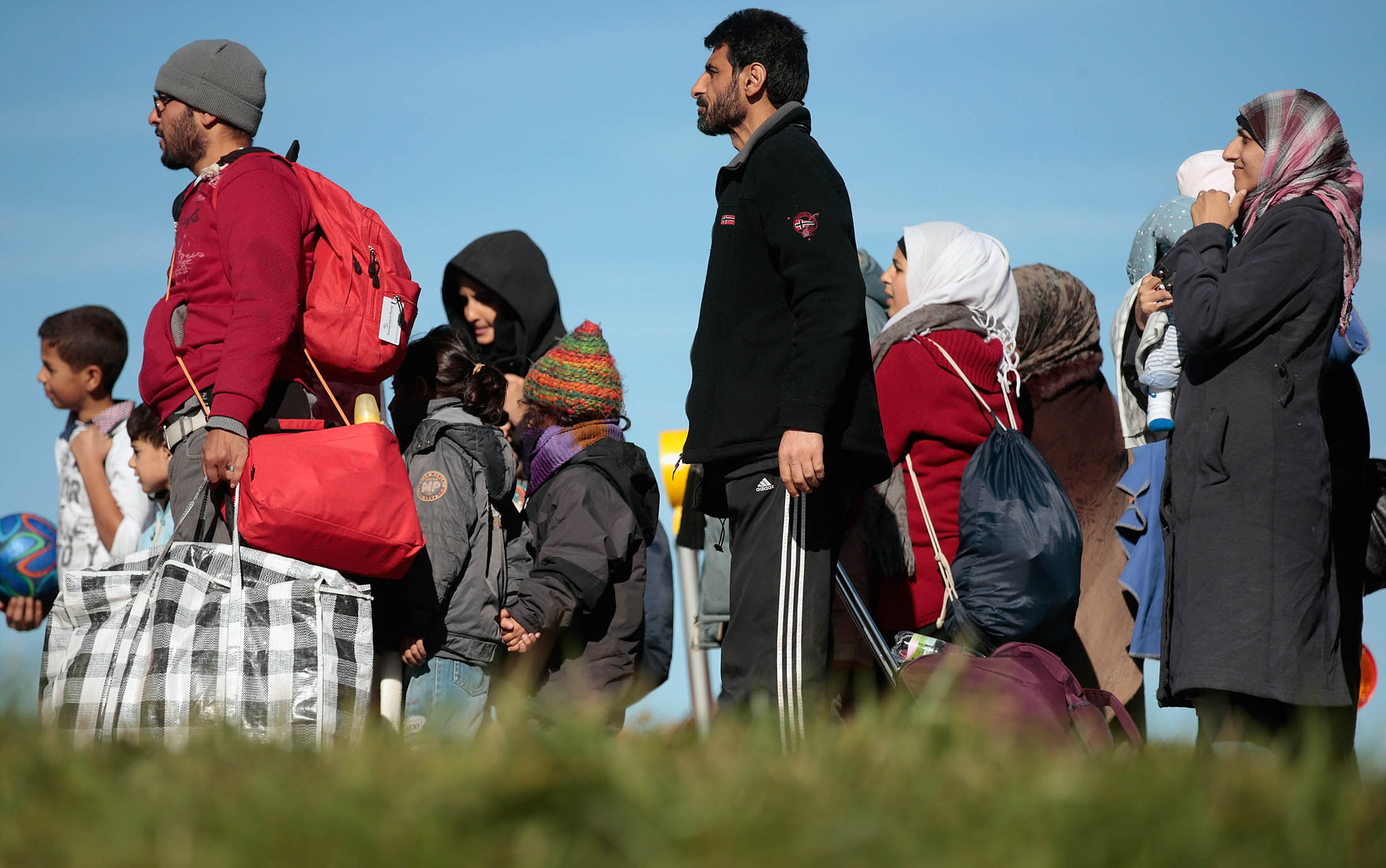Germans are kind of pompous, officious and arrogant anyway. German bureaucrats in particular love process; they enjoy make people jump through paper work hoops like circus animals. Why ? Because! On top of that the Winters are extraordinarily cold, damp and gloomy.

Mariam isn’t the kind of Syrian refugee Angela Merkel might have been expecting.
Mariam isn’t the kind of Syrian refugee Angela Merkel might have been expecting.
After a trek from Turkey with her three children to reunite with her husband in Berlin, the 23-year-old in her long black coat and cream headscarf wants to leave the city she thought would be a “paradise” and return to a Muslim country.
“I don’t want roots here, I don’t want to learn German or to integrate,” she said in Arabic, as she endured the rain on an October morning, asking not to be identified by her full name after escaping the violence at home. “I won’t need to, anyway, because I’m here only until the war in Syria is over.”
Many Syrians like Mariam at a Berlin refugee center spoke similarly of Germany as a temporary pit stop rather than a completely new life. While only a snapshot, it’s one that could presage the next chapter in the crisis engulfing Europe’s largest economy, with many newcomers resisting learning German and assimilation. Doing so would raise the risk of parallel societies emerging and add to voters’ concerns as Chancellor Angela Merkel faces the biggest threat yet to her chancellorship.
When she tossed opened Germany’s borders in August to asylum seekers, she spoke of how they would fill jobs as the local population shrinks and become the taxpayers of the future. Now, political allies within Merkel’s own Christian Democratic Union and its Christian Social Union sister party are voicing concern those efforts may fail as the influx shows no sign of abating. Syrians applying for asylum in Germany in the first nine months of 2015 numbered 73,615, out of a total of 303,443 applications, according to government data. The figures don’t include the thousands who have arrived in recent weeks and not yet been registered.
“It will lead to embitterment among the German public, a decline of trust in the political system and severe pressure on the CDU party to force Angela Merkel to modify her ways or to abdicate,” said Werner J. Patzelt, political science professor at the Technische Universitaet in Dresden.
Feeling Regret
Ahmed, another 23-year-old Syrian, has been in the country longer. His parents paid smugglers to get him to Germany more than two years ago, and he still hasn’t found a job. He doesn’t want to go to language classes, and supplements his 400-euro ($443) monthly stipend from the government by working off the books at Arab-run businesses.
“I regret coming here,” said Ahmed, also asking not to be identified by his full name after avoiding being drafted into the Syrian army. “The other day, I asked my friends who’d want to return, seven out of nine raised their hands. The rest have their families here.”
The difference between other recent crises Merkel had to contend with -- such as Russia’s intervention in Ukraine and the standoff with Greece -- is this one’s more visible.
Merkel’s open-door policy for asylum seekers fleeing from war zones has encouraged hundreds of thousands -- many coming for economic reasons from countries where they will eventually be returned -- to make the illegal journey.
Life Vests
On a recent chartered flight from Beirut to a Turkish resort town, the pilot warned passengers, many of them Syrian, not to steal the plane’s life vests, much needed by those crossing the Aegean on overcrowded rubber dinghies.
“What makes this so crucial and difficult for Merkel is that it’s not on our doorstep, it’s inside Germany and there’s no end to it,” said Judy Dempsey, a senior associate at Carnegie Europe in Berlin. Merkel and other German officials must make it "very clear that integration is a priority if you want to stay in this country. Otherwise, there’s going to a real sense of alienation on both sides," she said.
Loving Merkel
News of migrants suffocating in trucks or drowning at sea sparked an initial wave of support for the newcomers among Germans. Syrians already settled in the country are now trying to foster assimilation.
“I love Merkel,” said 28-year-old carpenter Ahmed. “I’m ready to learn German and do any kind of job. But when my two children become teenagers, I want to go back to the Arab world so they can grow up as good Muslims.”
Fawaz Tello, a Syrian opposition figure who’s been in Berlin for more than three years, stresses to new arrivals that integration won’t lead to a dilution of their faith and traditions.
“I tell them, ‘there’s more religious freedom here than you can ever imagine,’” Tello said. “Integration is respecting the law and others, being punctual, serious, precise and honest in what they do, and that Germans don’t care if they don’t eat pork.”
Yet the influx is overwhelming Germany, and many Syrians at the Berlin center spoke of how they’d expected a smoother transition in a country known for its efficiency.
Overcrowding
The gloss came off for Mariam when she and her family showed up at an overcrowded reception center. The endless paperwork, travel by subway, the gray weather and the non-Islamic culture have made her long for the life she abandoned in Turkey.
Others are tired of living in overcrowded gymnasiums, city halls and former barracks. Some have yet to be fingerprinted, an initial step in gaining refugee status.
One of them is 30-year-old Mohammed. He now wants to return to Turkey after five months in Germany. But since he came in illegally, he doesn’t know how to go back.
“The smugglers work one way only,” he said.

No comments:
Post a Comment